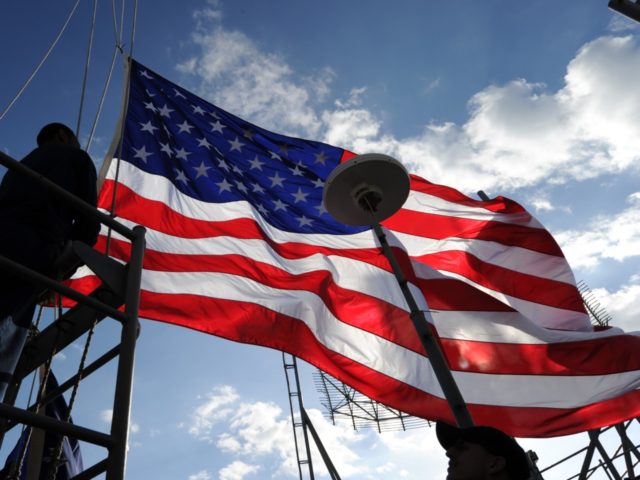U.S. warships sailed through the Strait of Taiwan on Sunday, the latest in a series of passages that have irked China because they demonstrate America’s commitment to defend Taiwan and protect freedom of navigation around the world.
The U.S. Navy also revealed that it warned China to cease aggressive behavior with nominally civilian trawlers and coast guard ships near disputed islands in the South China Sea or the United States will treat China’s behavior as an act of military aggression.
The U.S. Navy destroyers USS Stethem and USS William P. Lawrence passed through the Strait of Taiwan on Sunday to demonstrate the “U.S. commitment to a free and open Indo-Pacific,” according to a spokesman for the U.S. Seventh Fleet.
The spokesman added there were no “unsafe or unprofessional” interactions with other vessels during the transit.
“U.S. ships freely passing through the Taiwan Strait is part of the mission of carrying out the Indo-Pacific strategy,” said the Taiwanese Defense Ministry, confirming the passage of the American destroyers.
China generally objects to American freedom of navigation patrols and has been increasingly aggressive in asserting territorial dominance over the entire region, but had issued no comment on the Taiwan Strait as of Monday morning.
According to the Financial Times on Sunday, U.S. Navy Chief of Operations Admiral John Richardson said he issued a warning to Chinese Vice Admiral Shen Jinlong in January that America will begin treating aggressive actions by non-naval ships as military acts of aggression.
“I made it very clear that the U.S. Navy will not be coerced and will continue to conduct routine and lawful operations around the world,” Richardson told the Financial Times.
The Chinese have a rapidly growing “coast guard” plus a large “maritime militia” force, which essentially means a good number of Chinese fishing boats are crewed by armed paramilitary forces.
The Philippine government complains that swarms of Chinese trawlers and coast guard ships are surrounding disputed islands in the South China Sea and preventing Filipino fishermen from accessing their traditional fishing grounds. A few weeks ago, the Philippines added that China is conducting aggressive clam harvesting in disputed waters using techniques that disturb the sea bed and drive fish away.
Philippine President Rodrigo Duterte, who has been criticized for refusing to push back against Chinese territorial aggression, reportedly discussed Philippine territorial claims with Chinese Communist Party chief Xi Jinping when they met last Thursday. Analysts of the Philippine political scene believe there is real anxiety in Manila over China’s annexation tactics, rather than Duterte merely talking tough to shore up his poll numbers ahead of elections in May.

COMMENTS
Please let us know if you're having issues with commenting.